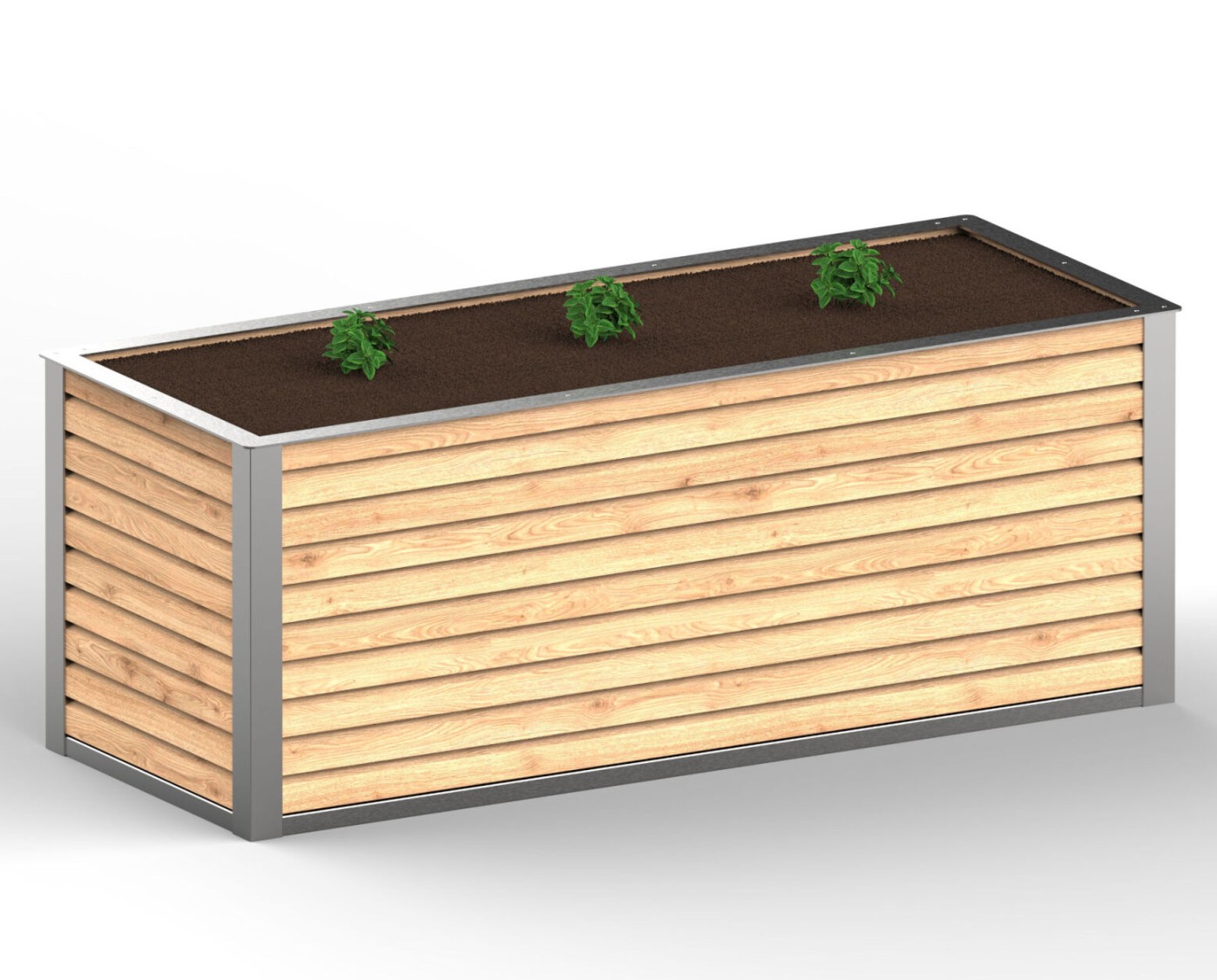Large Raised Garden Bed: A Gardening Solution for Elevated Yields
A large raised garden bed is a gardening technique that involves constructing a raised platform to grow plants. This method offers several advantages over traditional ground-level gardening, making it a popular choice for both experienced and novice gardeners.

Benefits of Large Raised Garden Beds
Improved Drainage: Raised beds promote better drainage, preventing waterlogging and root rot, especially in areas with heavy clay soil.
Warmer Soil: The elevated soil in raised beds warms up faster in the spring, allowing for earlier planting and extended growing seasons.
Reduced Weed Growth: The raised bed design creates a physical barrier, making it more difficult for weeds to invade your garden.
Enhanced Accessibility: Raised beds are easier to work with, reducing the need for bending and kneeling, making gardening more comfortable for people of all ages and abilities.
Increased Productivity: Raised beds allow for more intensive planting, resulting in higher yields per square foot of garden space.

Construction Tips
When constructing a large raised garden bed, consider the following tips:
Choose the Right Location: Select a sunny spot with easy access to water.
Determine the Size: The size of your raised bed will depend on your gardening needs and available space. A common size is 4 feet wide by 8 feet long.
Choose the Right Materials: Popular materials for raised beds include untreated lumber, cedar, and recycled materials like pallets.
Prepare the Soil: Fill the bed with a rich, well-draining soil mixture.
Consider Drainage: Ensure proper drainage by adding a layer of gravel or rocks to the bottom of the bed.
Planting and Maintenance
Planting: Plant your vegetables, herbs, or flowers in rows or blocks within the raised bed.
Watering: Water your plants regularly, especially during dry periods.
Mulching: Apply a layer of mulch to conserve moisture and suppress weeds.
Fertilizing: Fertilize your plants as needed to provide essential nutrients.
Pest and Disease Control: Monitor your plants for pests and diseases and take appropriate action.
Conclusion
A large raised garden bed is an excellent way to enhance your gardening experience. By providing optimal growing conditions, increased productivity, and improved accessibility, raised beds can help you cultivate a thriving garden. Whether you’re a seasoned gardener or just starting out, consider adding a raised bed to your outdoor space.

